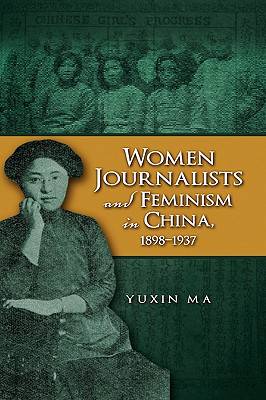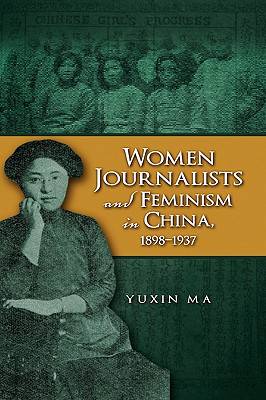
- Retrait gratuit dans votre magasin Club
- 7.000.000 titres dans notre catalogue
- Payer en toute sécurité
- Toujours un magasin près de chez vous
- Retrait gratuit dans votre magasin Club
- 7.000.0000 titres dans notre catalogue
- Payer en toute sécurité
- Toujours un magasin près de chez vous
176,45 €
+ 352 points
Description
A most remarkable change took place in the first half of the twentieth century in China--women journalists became powerful professionals who championed feminist interests, discussed national politics, and commented on current social events by editing independent periodicals. The rise of modern journalism in China provided literate women with a powerful institution that allowed them articulate women's presence in the public space. In editing women's periodicals, women writers transformed themselves from traditional literary women (cainü) to professional women journalists (nübaoren) in the period of 1898-1937 when journalism became increasingly independent of and resistant to state control. The women's media writings in the early decades of the twentieth century not only reveal the historical diversity and complexity of feminist issues in China but also casts light upon important feminist topics that have survived the Nationalist, Communist, and economic reform eras. Today, public debate on women's issues in Mainland China and Taiwan is shaped by past feminist discourse and uses a vocabulary and language familiar to readers of an earlier era. This book examines how women journalists constructed Chinese feminism and debated patriarchy and women's roles in the newly created public space of print media during the period of 1898-1937. It studies Chinese women's public writings in periodicals edited and staffed by women journalists in four major urban centers-Shanghai, Tokyo, Beijing, and Tianjin at a time when urban society underwent major transformation and experienced drastic political, social, and cultural changes. The revolution that overthrew the imperial government in 1911; an attack on patriarchy by cultural radicals in 1915-1919; and the advocacy of nationalism, liberalism, socialism, and feminism by intellectuals who received a Western-style education all worked together to undermine the Confucian notions of gender hierarchy, spatial separation of the sexes, and female domesticity among the well-educated urban classes. Doors of political participation, public activism, and production cracked open for courageous women who ventured into urban public spaces. From 1898 to 1937, urban women of the upper, middle, and working classes became increasingly visible at modern schools, as well as in career and production fields, political activism, and women's movements. At the same time, women edited independent periodicals and championed women's rights. Women's periodicals provided a site where writers negotiated with nationalism, patriarchy, and party lines to define and defend women's interests. These early feminist writings captured how activists perceived themselves and responded to the social and political changes around them. This book takes a historical approach in its examination and uses gender as an analytical category to study the significance of women's press writings in the years of nation building. Treating women journalists as agents of change and using their media writings as primary sources, this book explores what mattered to women writers at different historical junctures, as well as how they articulated values and meaning in a changing society and guided social changes in the direction they desired. It delineates the transformation of women journalists from political-minded Confucian gentry women to professional journalists, and of women's periodicals from representing women journalists' views to addressing the concerns and needs of the majority of women. It analyzes how the concepts of "feminism" and "nationalism" were embodied with different--even contesting--meanings at given historical junctures, and how women journalists managed to advance various feminist agendas by tapping on the various meanings of nationalism. This is an important book for collections in Asian studies, journalism history, and women's studies.
Spécifications
Parties prenantes
- Auteur(s) :
- Editeur:
Contenu
- Nombre de pages :
- 470
- Langue:
- Anglais
Caractéristiques
- EAN:
- 9781604976601
- Date de parution :
- 18-01-10
- Format:
- Livre relié
- Format numérique:
- Genaaid
- Dimensions :
- 152 mm x 229 mm
- Poids :
- 857 g

Les avis
Nous publions uniquement les avis qui respectent les conditions requises. Consultez nos conditions pour les avis.






